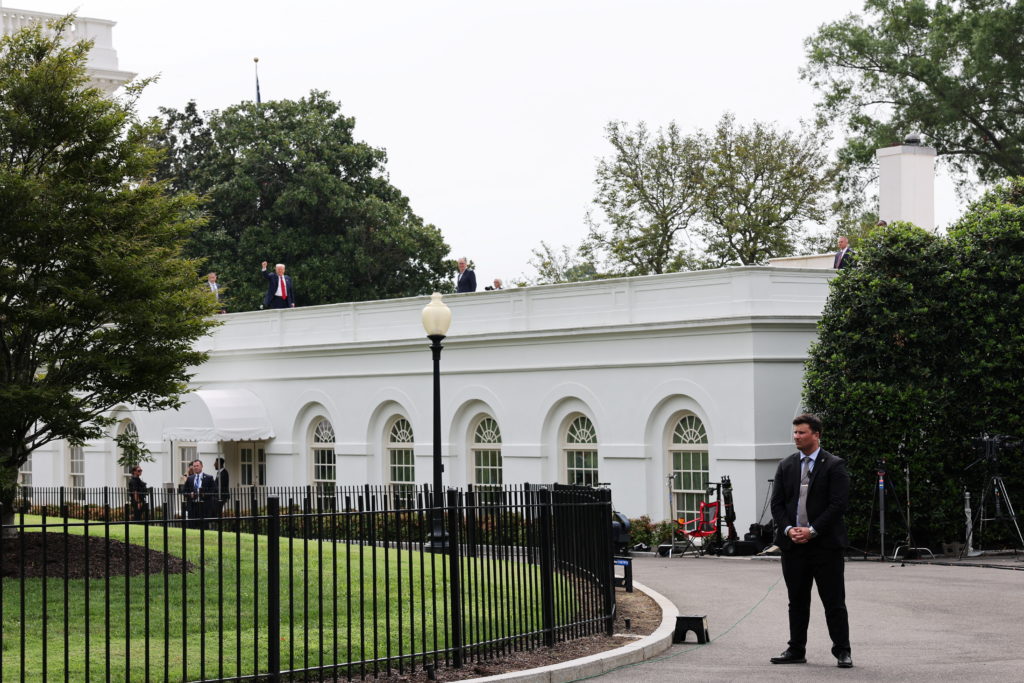Paul Finebaum watched Indiana give Curt Cignetti an eight-year, $93 million contract extension and saw a disaster in the making.
The Hoosiers made Cignetti the third-highest-paid coach in college football on Thursday after he led them to a 30-20 upset of No. 3 Oregon last weekend. The deal pays him an average of $11.6 million annually through 2033, putting him ahead of Lincoln Riley and behind only Kirby Smart and Ryan Day.
Indiana moved quickly to lock him up with the Penn State job open following James Franklin’s firing, but Finebaum thinks that urgency is exactly what’s going to get them in trouble.
“They did not,” Finebaum said Friday on First Take when asked if Indiana made the right move. “And before anybody jumps out of their chair, allow me to explain. I think everyone on this panel agrees that he’s done a phenomenal job. But this is how programs get in trouble. They just gave him an extension and a contract raise at the end of last season. We’re barely at the midpoint. Let it play out before you completely send the Brinks Truck out.”
Stephen A. Smith: “Did Indiana make the right move with Cignetti?”
Paul Finebaum: ” They did not…I’m still not convinced that Curt Cignetti is one of the top coaches in America.” pic.twitter.com/sMtnmk4EfP
— Awful Announcing (@awfulannouncing) October 17, 2025
Finebaum used Stephen A. Smith as an example of the kind of talent worth breaking the bank for, pointing out that ESPN paid Smith around $100 million because he’s a once-in-a-lifetime commodity. His implication was that Cignetti isn’t that.
“I’m still not convinced that Curt Cignetti is one of the top coaches in America,” Finebaum continued. “He has coached brilliantly this year, but can’t you let it play out a little bit? He has one big win this year, maybe one and a half, including the win a couple of weeks ago over Illinois. And, by the way, because Indiana is going to be in the playoffs, there’s no way he could leave anytime before December or January.”
That’s where Finebaum’s argument starts breaking down. Indiana isn’t worried about Cignetti leaving in December. The Hoosiers are worried about him leaving after the season for Penn State or another major program that would’ve paid him more than the $8 million annually he was making before this extension. The Hoosiers went 9-27 in three seasons under Tom Allen before Cignetti arrived. He’s 17-2 in less than two full seasons. Indiana has never been this good at football, and its trying to keep it that way.
Finebaum brought up Mel Tucker’s $95 million deal at Michigan State as a cautionary tale, along with James Franklin and Jimbo Fisher. The Tucker comparison is interesting, considering Michigan State fired him for cause after sexual harassment allegations, not because he went 5-7 and lost to Ohio State. Finebaum mentioned that Tucker “went out and lost to Ohio State, and he completely imploded after that,” conveniently leaving out the reason Tucker was actually fired.
“All I’m suggesting is take a deep breath, Indiana,” Finebaum said. “Let the season play out a little bit before you mortgage a guaranteed $93 million contract that you may have to figure out a way to pay for down the road.”
Indiana’s athletic director, Scott Dolson, doesn’t appear interested in taking a deep breath. Cignetti had already been linked to the Penn State opening, and waiting until after the season would’ve meant watching other programs throw money at him while the Hoosiers hoped he’d stay loyal. Indiana sold out its final four Big Ten games last season and sold out the entire 2025 conference slate. The program is making money because of Cignetti, not losing it.
Finebaum has been consistent about not liking Cignetti, calling him “unlikable” and “brash” earlier this week while predicting Indiana’s success isn’t sustainable. He said Cignetti should leave Indiana before it all comes crashing down, which is an odd take for someone who also thinks Indiana shouldn’t have paid him to stay.
The bigger issue with Finebaum’s analysis is that he’s treating this like Indiana had the luxury of time. They didn’t. Penn State just fired a coach who took them to the playoff semifinals last season. Nebraska is paying Matt Rhule $9 million a year. The market for coaches is insane, and Indiana jumped in before someone else did.
Cignetti’s buyout if he leaves is $15 million. Indiana’s buyout if they fire him is approximately $78 million. Those numbers tell you everything about who has the leverage in this relationship and why Indiana felt they needed to act now.
Finebaum is right that coaches get overpaid and programs get burned. But he’s comparing Cignetti’s situation to Tucker’s without acknowledging that Tucker’s failure had nothing to do with football and everything to do with off-field conduct that got him fired for cause. Fisher flamed out at Texas A&M after winning a national title at Florida State. Franklin just got fired despite taking Penn State to the playoff. Those situations aren’t the same as what Cignetti’s built at Indiana.
Indiana hadn’t won 10 games in a season in the program’s 127-year history before Cignetti showed up. They’re 6-0 this year with wins over Illinois and Oregon. Maybe Finebaum is right, and it all falls apart. But Indiana decided they’d rather pay Cignetti $93 million to find out than watch him leave and go back to losing to Rutgers by three touchdowns every November.

